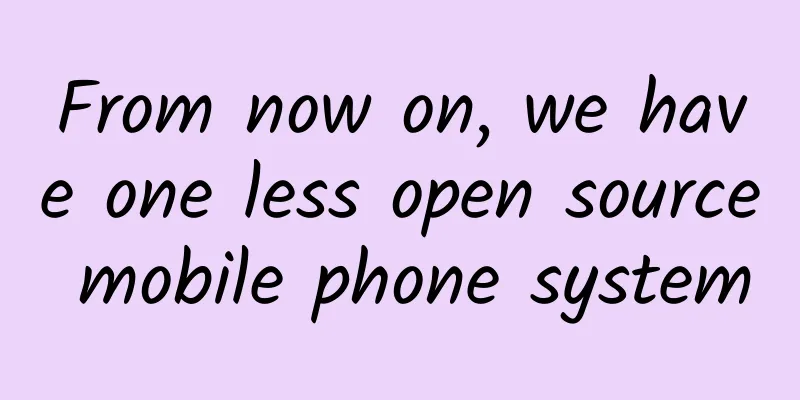From now on, we have one less open source mobile phone system

|
Firefox OS, a bold attempt by traditional browser giant Mozilla in the field of mobile phone systems, finally came to an end with the official disclosure today that no related smartphones and devices will be launched. According to Engadget, Mozilla officially announced earlier today: "We will stop providing Firefox OS phones to operators." However, they still hope to make further software attempts on other smart devices, but not mobile phones. As for the most critical reason, Mozilla said they could not provide the "best user experience" on mobile phones.
Unlike iOS and Android, the biggest feature of Firefox OS is that its architecture is not a traditional system, but a Gecko browser engine built on Linux, and both the system and applications are developed using HTML5. In principle, this approach has inherent advantages in cross-platform compatibility and further reducing hardware costs. So Mozilla chose low-priced entry-level mobile phones as its target from the beginning, and even chose developing BRICS countries such as Brazil as its first market, rather than the US market where competition in the mobile field is the most intense. However, with the further development of the mobile industry chain, the prices of entry-level Android and Windows mobile phones have dropped to less than US$100 (RMB 642), so there is naturally no room for Firefox OS to survive. This is why Firefox OS is always classified as "other" in the pie charts of various mobile phone system surveys. Although the free use of Firefox OS has attracted a number of mobile phone manufacturers, in today's mobile field where native applications are popular, the practice of leaving all functions to HTML5 may still be too radical. The idea is very good, but most App makers are not very interested in Firefox OS, and the fact that mobile web pages are already quite mature is one of the reasons. This dilemma even gave birth to j2me.js, a practice that runs Java-based software on the Android platform with JavaScript in the browser, which is itself extremely ironic. With the exit of Firefox OS, Android is the only open source smart mobile system left. However, there is no need to worry about causing too much impact, after all, Firefox OS itself does not account for much of the proportion.
Of course, the most regrettable thing is those Firefox OS phones that have become products. Of course, there is no shortage of such phones that eventually died because of the operating system in the history of mobile phone development, such as Nokia N9 using MeeGo and Palm using WebOS. |
<<: Google's quantum computer runs 100 million times faster than traditional computers
>>: Google reportedly secretly plans to add cloud computing services
Recommend
108 advertising promotion strategies + 100% practical tips!
blog 1. Publish serialized content. Serialization...
Reject BOSS Direct’s “brainwashing” marketing! Avoid these 3 misunderstandings when promoting your products!
Recently, many netizens have expressed that they ...
Gartner Releases 2019 Cloud Computing Market Data Report: Some Companies Are Happy, Others Are Sad
199IT News, April 24th. Recently, Gartner, a glob...
How to place massive Qianchuan search ads?
Qianchuan has fully opened up the delivery of sea...
The sudden appearance of a huge star and the astronomer who calmed the public opinion crisis
In December of the second year of the Jingde reig...
The highest level of WHO alert! To deal with monkeypox, we need to clarify these issues
The World Health Organization announced on the 23...
How to build a core fan group for your live broadcast room?
Hundreds of fans can be seen in Li Jiaqi and Wei ...
Can't eat peaches and watermelons together, will it cause poisoning? Can't drink lemonade during the day? Here comes the truth
With the arrival of summer, fruits and vegetables...
Key staff members resigned in a rush, causing Coocaa to face a crisis of evaporation of soft power
"One million units is a watershed for TV manu...
5 common techniques and strategies for live streaming traffic generation!
Nowadays, live streaming is imperative to attract...
Who would have thought that “donating feces” could actually make money! ?
Editor: He Jian “Donating feces” can make money I...
Re/code editor tries out iOS 9: Upgrading is not recommended at this time
Apple recently released a beta version of iOS 9 a...
How to write a new media marketing promotion plan!
What role does new media marketing play? How to s...
Surface 2 to be released on September 23 with 1080p screen
[September 9 news] Microsoft has sent out invitat...
The rise of mobile payment apps in Europe and the United States: When “alternative payments” are no longer alternative
Speaking of "alternative payments", bef...









